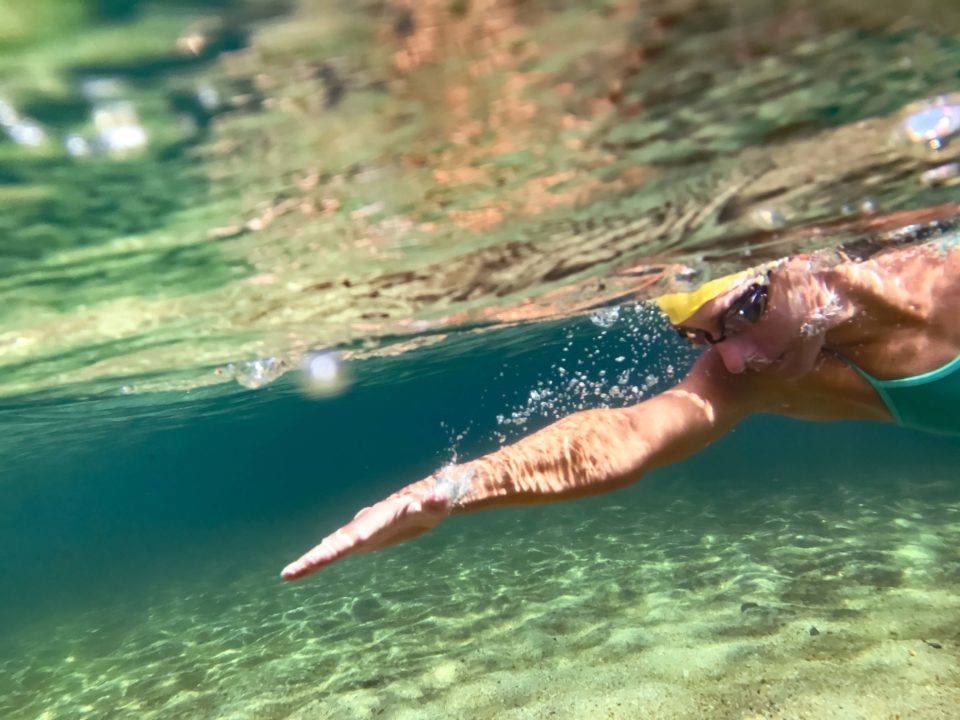New Year’s Day typically brings about the Polar Bear Plunge tradition, where swimmers around the world venture into cold bodies of water for a brief period of time, often with the purpose of donating money to charity. One of the longest-running events of this type is the Coney Island Polar Bear Club’s New Year’s Day Plunge, hosted in the Atlantic Ocean at Coney Island in New York since 1903.
But, cold water swimming doesn’t have to be a one-time yearly event. There are documented benefits of periodically adding cold water swimming to your regimen, provided you’re in overall good health.
After perusing several studies on the subject, below is a short list of the benefits found from swimming in cold temperatures, in case you want to add this to your training line-up for 2019 (after checking with your doctor first!)
Boosts the Immune System:
Per a study published in Free Radical Biology and Medicine, “regular cold water immersion helps boost your body’s levels of the antioxidant glutathione, which in turn helps regulate the process of all other antioxidants in the body, helping to reduce your risk of heart disease and cancer.”
Additionally, studies done in the Czech Republic indicate that cold water swimmers have 40% less upper respiratory diseases.
Reduces Inflammation
Your body’s inflammatory response is reduced in cold water, which helps muscles recovery more quickly. Per BBC water should be below 16 degrees Celsius/60 Fahrenheit. Repeated exposure also helps our bodies adapt to the cold. (lifehack.com)
Can Possibly Treat Depression
Cold water swimming can possibly help treat depression in some people. Per a BBC article, “immersion in cold water evokes a stress response, a set of physiological and hormonal reactions that evolved millions of years ago to cope with a wide range of potential threats. Heart rate, blood pressure and breathing rate all increase and stress hormones are released.”
Further, cold water stimulates the parasympathetic system, which helps your body rest and repair itself. “The release of the neurotransmitters dopamine and serotonin is associated with open water swimming. Low levels of dopamine and serotonin are found in people with depression, whereas higher levels help to keep you in a good mood.” (The Scotsman)
Increased Libido:
Sex hormones testosterone in men and estrogen in women have been shown to increase during submersion in cold water. This translates to increased libido and a potentially happier sex life.

Swimming in cold water is not good for your ears. Over a long time you can get exostosis (surfer’s ear) and may need surgery. I would not recommend that you expose your ears to cold water/ wind for long periods of time.
Any swimswamers ever try the wym hoff method? Related to cold water exposure but adds in breathing as well
Yes. Innate immune cells such as macrophages have inflammatory (sometimes known as M1) and anti-inflammatory (M2 or alternatively activated) states. The alternatively activated macrophages are reparative and thermogenic (burn fat). If you wanna get down an dirty the best science on this shows that cold actually induces M2 macrophages in an Interleukin-4 and Catecholamine dependent manner.
search in google;
Chawla A, Nature. ; 480(7375): 104–108. doi:10.1038/nature10653.
This is the basis of the Fat/Fit phenomenon where exercising fat dudes don’t get too much diabetes. Exercise/cold-induced catecholamines reverse the inflammatory macrophage profiles that lead to the metabolic syndrome (diabetes/fatty liver/hypertension/depression, etc).
Cold is good as long as you don’t get sick. Exercise is good. Not that we needed… Read more »
If you experience a practice lasting more than four hours, please seek immediate medical help.
Those poor open water swimmers
Want longer, stronger more frequent… err practices?
I think my pool is cold enough thanks.
Not mine. 83-85 all the time. I hate it.